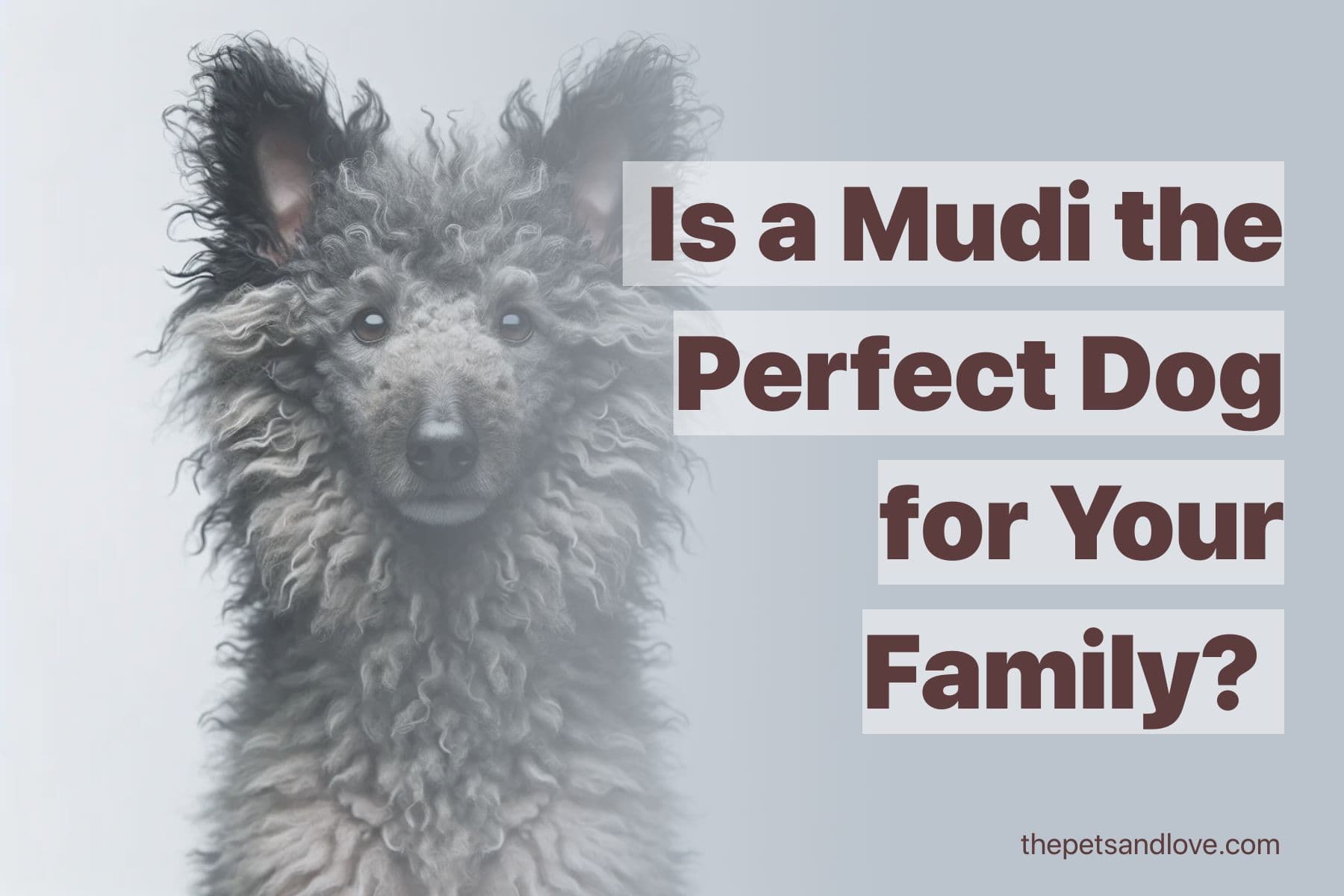What to Think About Before Getting a Mudi Puppy

If you’ve been hearing buzz about the Mudi (pronounced “Moodie”), you’re not alone — this rare Hungarian herding dog recently got AKC recognition, and it’s turning heads for good reason. We’ve spent enough time around high-energy breeds to know: the Mudi isn’t for everyone, but in the right home, they’re absolutely incredible.
Here’s what you really need to know before bringing one home.
The Mudi is not your average couch dog.
Mudis are working dogs through and through. Originally bred in Hungary to herd sheep, they’ve got energy for days, a sharp mind, and a natural drive to stay busy. If you’re looking for a jogging partner, agility buddy, or just a dog that wants to be in on everything you’re doing — the Mudi might be your match.
But if your lifestyle is more Netflix than nature hikes, this isn’t the breed for you.
Exercise isn’t optional.
A bored Mudi is a destructive Mudi. They need at least an hour of real activity every single day — and not just a stroll around the block. Think agility, running, fetch, swimming, scent work, or anything that lets them use both body and brain. We’ve seen Mudis thrive in dog sports and crumble in apartments with nothing to do.
If you’re outdoorsy or love training challenges, they’ll keep up with you every step of the way.
They’re smart — and they know it.
These dogs are incredibly intelligent and responsive. They pick up on routines fast and are eager to please, but they’re also independent and have a stubborn streak. That means training has to be consistent, positive, and engaging. They don’t do well with harsh corrections — they’ll shut down or tune you out.
Start socialization and training early. Give them structure, but let them think. You’ll be amazed at what they can do.
Watch out for the herding instinct.
Mudis may try to herd kids, cats, or even guests. It’s not aggression — it’s instinct. We’ve seen pups gently try to round up children during playtime, which can be cute… until it’s not. Early socialization helps, and so does redirecting those herding urges into appropriate outlets like herding trials or structured games.
They’re loyal watchdogs.
Mudis are naturally alert and protective. They’ll let you know if something’s off — and they won’t stop barking until you check it out. That can be great if you want a watchful companion, but it can become a problem in tight living quarters. Teaching a “quiet” cue early on is a must.
They love their people — a lot.
This is not a dog that wants to be left alone in a backyard. Mudis are deeply attached to their humans and need to be part of the family action. They’ll follow you from room to room, and if you’re not into having a shadow, they’re probably not your breed.
We’ve found that Mudis thrive in homes where someone’s around most of the day or where they can be involved in daily activities.
They’re gentle souls underneath the energy.
Despite their drive, Mudis are sensitive and affectionate. They pick up on your moods and respond best to patient, positive training. They’re often fantastic with kids (especially with early training) and can get along with other pets — though introductions should be slow, and small animals should be supervised closely.
Grooming is easy — really.
Their medium-length, wavy coat is surprisingly low-maintenance. It’s self-cleaning (a win!) and only needs brushing when dirty. Keep an eye on their ears, trim their nails, and brush their teeth regularly. That’s about it.
They’re rare — and not cheap.
There are only a few thousand Mudis in the world, with most still in Europe. That rarity comes with a price tag — expect to pay $1,000 to $3,000 for a puppy from a reputable breeder. But with that comes a dog that’s been bred carefully for health, temperament, and working ability.
Health-wise, they’re pretty solid.
Mudis are generally a healthy breed with a lifespan around 12–14 years. Like all dogs, they can be prone to genetic issues like hip dysplasia, epilepsy, or cataracts — so responsible breeding and regular vet care are key.
Bottom line:
The Mudi isn’t a dog for everyone — especially not first-time dog owners or folks who just want a laid-back companion. But if you’re up for the challenge and have time, patience, and energy to spare, the Mudi will reward you with fierce loyalty, intelligence, and a whole lot of love.
Just be ready to keep up — this little Hungarian herder doesn’t slow down.
Take the Quiz
Is a Mudi Right for You?
The Mudi is an agile and versatile herding dog known for its intelligence and loyalty. Discover if this energetic breed is the perfect match for your lifestyle by taking our quiz! Answer all questions below to discover your compatibility score and get personalized insights.
Question #1: What is the main reason you want a dog?
Question #2: How active is your lifestyle?
Question #3: How much time can you dedicate to your dog daily?
Question #4: What best describes your home environment?
Question #5: What size dog do you prefer?
Question #6: What personality traits do you want in your dog?
Question #7: How much grooming can you handle?
Question #8: Who else lives with the dog?
Question #9: Is this your first dog?
Please answer all 9 questions to see your results
